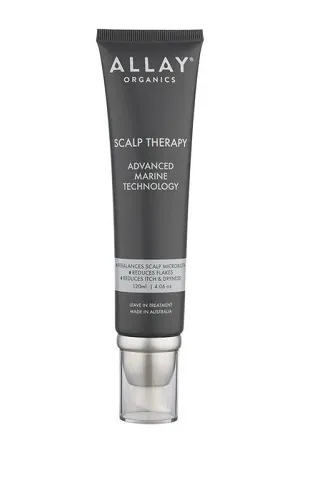PREBIOTICS:
What are Prebiotics?
 Prebiotics are special plant fibers that help healthy bacteria grow in your gut. This makes your digestive system work better.
Prebiotics are special plant fibers that help healthy bacteria grow in your gut. This makes your digestive system work better.
Prebiotics are found in many vegetables and fruits, especially those that contain complex carbohydrates such as resistant starch and fiber. These carbs aren’t digestible by your body, so they pass through the digestive system to become food for the good bacteria and other microbes.
Prebiotics vs. Probiotics
Both Prebiotics and probiotics are great for your gut, but they assist in different ways. Prebiotics are a source of food for your gut’s healthy bacteria. They are carbs that your body is unable to digest. So they go to your lower digestive tract, where they act like food to help the healthy bacteria develop.
Probiotics are live good bacteria and yeasts that live in our body and are beneficial for your digestive system. You can get probiotics as supplements or get them through meals. Possibly the most common probiotic food is yogurt.
How Do You Get Prebiotics?
You will get Prebiotics in many whole grains, fruits and vegetables like:
- Barley,
- Wheat,
- Apples,
- Asparagus,
- Bananas,
- Berries,
- Cocoa,
- Chicory,
- Dandelion greens,
- Green vegetables,
- Garlic,
- Leeks,
- Oats,
- Onions,
- Peas and beans,
- Tomatoes
Some readymade products have added Prebiotics. They may include:
- Baby formula,
- Bread,
- Cookies,
- Cereal,
When you’re shopping for these products, you will, likely, not see the word ‘Prebiotic’ on the label. Instead, look for terms like:
- Galactooligosaccharides,
- Oligofructose,
- Fructooligosaccharides,
- Chicory fiber,
- Inulin.
You can also find Prebiotics in dietary supplement form. Babies get them from their mother’s milk.
Proven Health Benefits
Effects on the Immune System
One of the favourable effects of Prebiotics is the stimulation of the immune system. Gut microorganisms are known to impact diverse properties of the adaptive and natural mucosal immune system. The effects can be direct or indirect by developing the population of beneficial probiotics or microbes, especially of bifidobacteria and lactic acid bacteria. Prebiotics stimulate the activity of Gut-Associated Lymphoid Tissues (GALT) which decreases the risk of diseases and offers a circumstance of well-being.
immune system. Gut microorganisms are known to impact diverse properties of the adaptive and natural mucosal immune system. The effects can be direct or indirect by developing the population of beneficial probiotics or microbes, especially of bifidobacteria and lactic acid bacteria. Prebiotics stimulate the activity of Gut-Associated Lymphoid Tissues (GALT) which decreases the risk of diseases and offers a circumstance of well-being.
Colorectal Cancer Prevention
Prebiotics may be advantageous in the prevention of colorectal cancer by modifying the activity or form of the colorectal microflora. The production of short chain fatty acids (SCFA) and modifications of gene development in cancerous cells are the key mechanisms thought to be responsible for the anticancer effects. Many preclinical and epidemiologic studies have also displayed a decrease in the levels of diverse biomarkers of colorectal cancer after the application of Prebiotics.
Prevention of Inflammatory Bowel Disease
Dysbiotic intestinal microbiotais the primary cause of inflammatory bowel disease and hence there has been guiding research in developing new medications which target the gut microflora. Prebiotics improve the gut mucosal barrier and modify the microflora, and hence assist in the prevention of Inflammatory Bowel Disease (IBD). It has been claimed that Prebiotics support the bowel wall, through the production of SCFAs, and are thus favourable in Chron’s disease. In ulcerative colitis, Prebiotics are assumed to reduce the production of hydrogen sulphide gas due to a decrease in the number of sulphate-producing bacteria.
Relieving Constipation
Intestinal dysbiosisis a prime cause of constipation. By rousing the growth of beneficial healthy bacteria, Prebiotics like bifidobacteria act as a stable option in relieving constipation. SCFA production by these bacteria play a central role in modulation of intestinal activity by applying a trophic effect on the epithelial cells. This finally leads to increased intestinal agility and increased blood flow.
Prevention of Obesity
Gut microbiota is involved in the development of low-grade inflammation which interrupts the absorption of fats and the metabolism of glucose. These interruptions are distinguishable properties of obesity. Prebiotics enhance the gut barrier unity and reduce intestinal low-grade inflammation, thus elevating metabolic variations and promoting weight loss.
Cholesterol Lowering Effects
The cholesterol-lowering effects of Prebiotics are primarily due to the production of short-chain fatty acids. The SCFAs are absorbed in the portal vein and metabolised by the liver, resulting in the lowering of blood pressure. Prebiotics are also involved in the absorption of fats in the lower intestine. This obligatory effect of Prebiotics also leads to reduced levels of cholesterol. A reduced level of total cholesterol raises the clearance of LDL cholesterol and potentially reduces blood pressure.
In addition to all these benefits, Prebiotics also can:
- Help you absorb calcium,
- Change the rate at which foods cause spikes in blood sugar (known as the glycaemic index).
How to Use Prebiotics Safely?
Try to get Prebiotics from whole foods since they also have healthy antioxidants, vitamins, and minerals. Experts say you should get at least 5 grams of Prebiotics in your diet every day. Start with small amounts so your gut can get used to them.
Conclusions
Prebiotics shows off a remarkable influence on human health, which makes them likeable agents to enhance the quality of human life against obesity, vascular diseases, cancer, and even mental disorders. Prebiotics are sometimes referred to as microbiome fertilizers. They fuel colonocytes and promote the growth of beneficial microbes.
If you’re interested in taking a prebiotic supplement, consult a healthcare professional first. They can help you decide whether a prebiotic supplement is right for you.
Other Products:
-

Organic Whipped Tallow Cream 120ml
$34.50Add to cart -

Blushwood Berry Seed Extract EBC-46 Tincture
$120.95Add to cart -

Scalp Therapy Advanced Marine Technology Allay Organics
$48.50Add to cart -

Organic Cordyceps Militaris Evolution Botanicals
$72.99Add to cart -

Turkey Tail Mushroom Super Foods
$79.99Add to cart -

Cordyceps Mushroom Forest Superfoods
$89.00Read more
[bmi]
